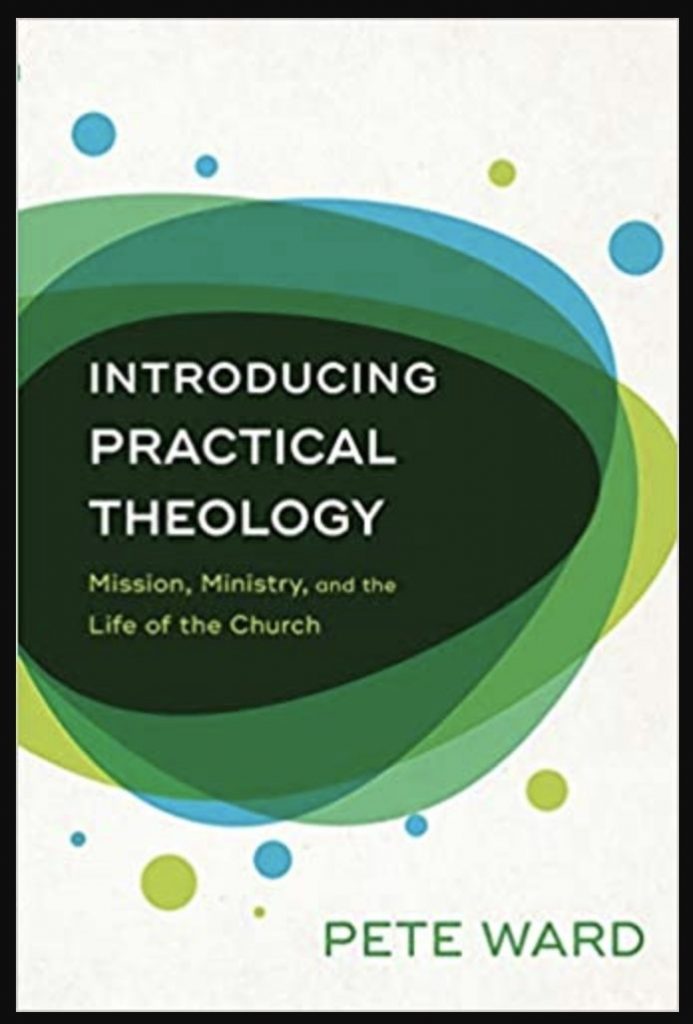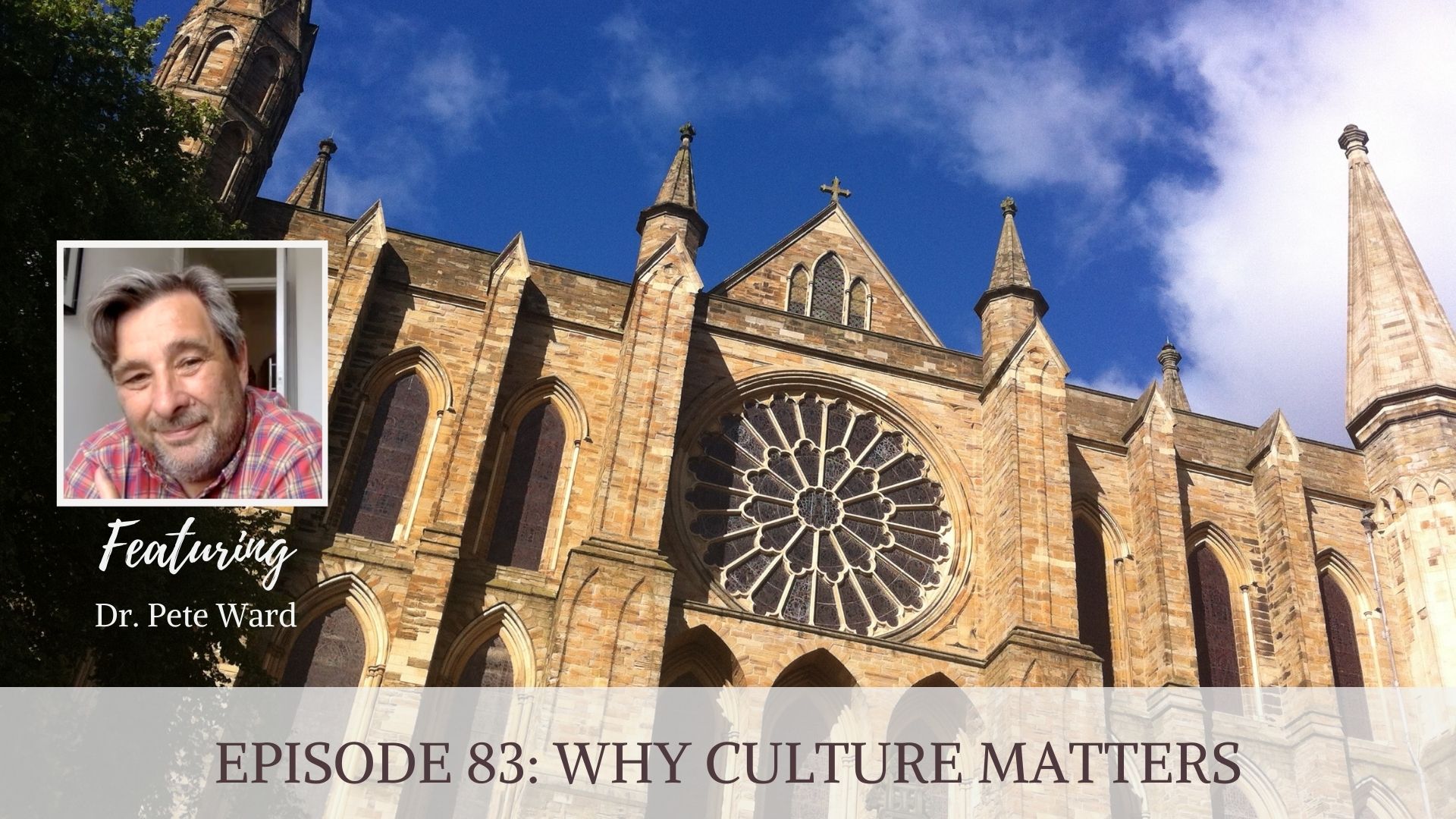The first time I met Pete Ward in person we had a theological argument. We also had drinks and some laughs in a mutual friend’s living room. As I recall, Mary McClintock Fulkerson and I might have teamed up against him. Just a little, maybe. But he could take it. And he could dish it out.
That was eight years ago, and it was my introduction to the Ecclesiology and Ethnography Network. That first U.S. gathering (for me) at Luther Seminary in St. Paul, Minnesota, was the beginning of some very fruitful conversations and collaborations with colleagues who study religion, ministry, and theology using qualitative methods.
Later that same year (2012), I took my first trip to Durham University in the North of England to another Ecclesiology and Ethnography Conference. Many more conferences and papers and connections followed. My hopes were set on returning this year, but 2020 is not having it.
Since those first E+E meetings, my appreciation and respect for Pete Ward continues to grow. One of Pete’s strengths is gathering groups of people. With this group over the years, we’ve enjoyed more laughs, and drinks, and arguments. As theologians do.
Exploring Why Culture Matters
In this week’s episode of Three Minute Ministry Mentor, Pete and I are talking about what drew him into his work and why studying culture matters for people learning the practice of ministry.
Pete took his first lessons about cultural differences from missiology. Missional leaders noticed that when the Gospel was being shared in different parts of the globe, cultural differences made an impact on what could be heard and said and understood.
He found the same to be true when he worked among young people in the streets doing relational ministry. Differences in culture shape the way even the most relationally oriented ministry could unfold.
 When I asked him what turned him toward practical theology, he was less enthusiastic. In typical Pete fashion he cut right to the heart of things and said sometimes practical theology is just a drag. Hilarious. Here is his 2017 book Practical Theology: Mission, Ministry, and the Life of the Church.
When I asked him what turned him toward practical theology, he was less enthusiastic. In typical Pete fashion he cut right to the heart of things and said sometimes practical theology is just a drag. Hilarious. Here is his 2017 book Practical Theology: Mission, Ministry, and the Life of the Church.
Occasionally practical theology can be a useful umbrella. Not the kind that gets you out of the rain, but the kind that gathers similar things to help us understand them through family resemblance. Practical theology can be quite useful for the practice of ministry. Pete’s introduction in this book can help you see why and how.
Why Should Ministers Study Culture?
Why should anyone preparing to be a chaplain, priest, minister, or religious leader, at Durham University or any seminary, take on the study culture?
Pete has two reasons, and you’ll have to listen for yourself to learn what he says!*
We’re grateful for the next few weeks to be featuring more of my conversation with Pete Ward. And we encourage you to explore the Ecclesiology and Ethnography network. I also just discovered that one full issue of the E+E Journal, Ecclesial Practices is open access for the moment. Enjoy!
The E+E Network would typically be gathering in person this time of year in Durham. But of course the pandemic has changed those plans for 2020. In the meantime, please enjoy and share these conversations with one of the E+E founders, Pete Ward.
+++++++
* Everyone who posts on Facebook, Twitter or Instagram, and shares the two reasons that Pete Ward says all ministers should study culture, and tags #3MMM, will have a chance to win Pete Ward’s book Introducing Practical Theology.





